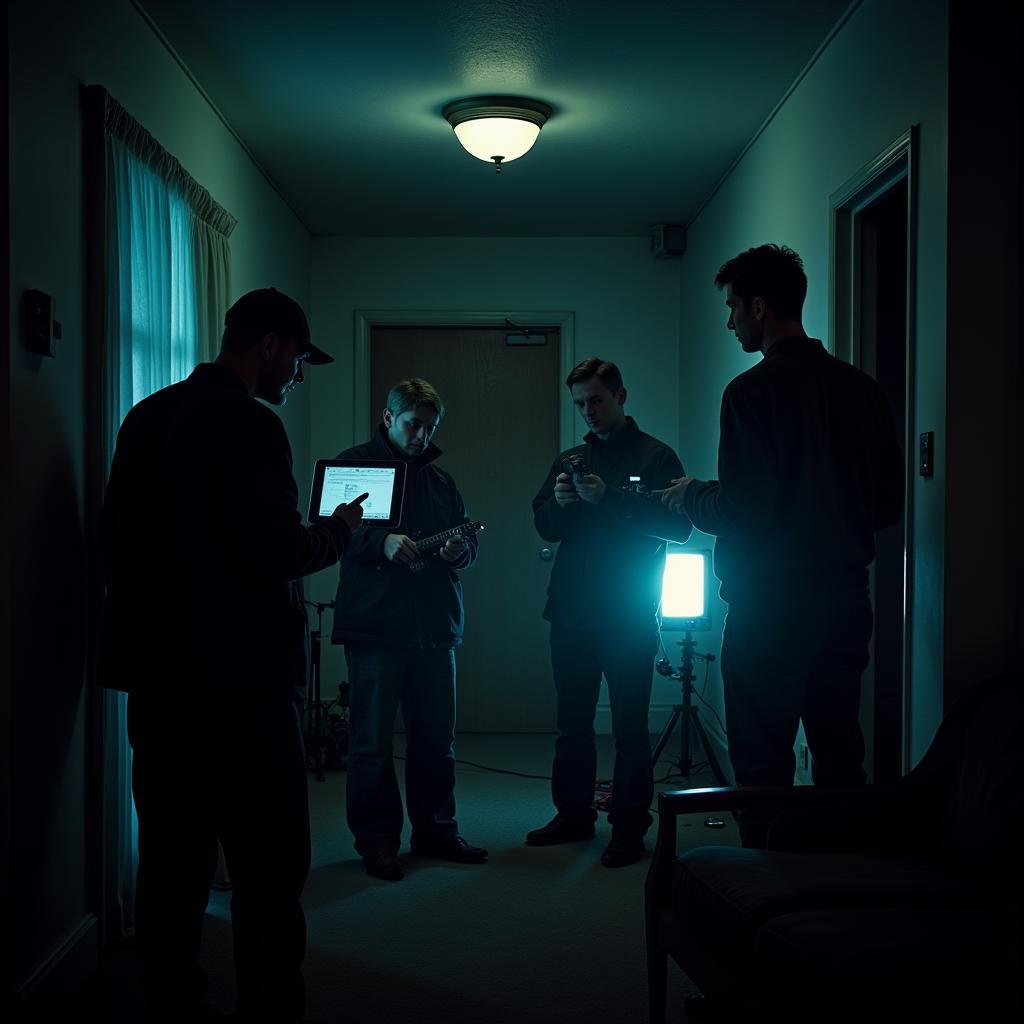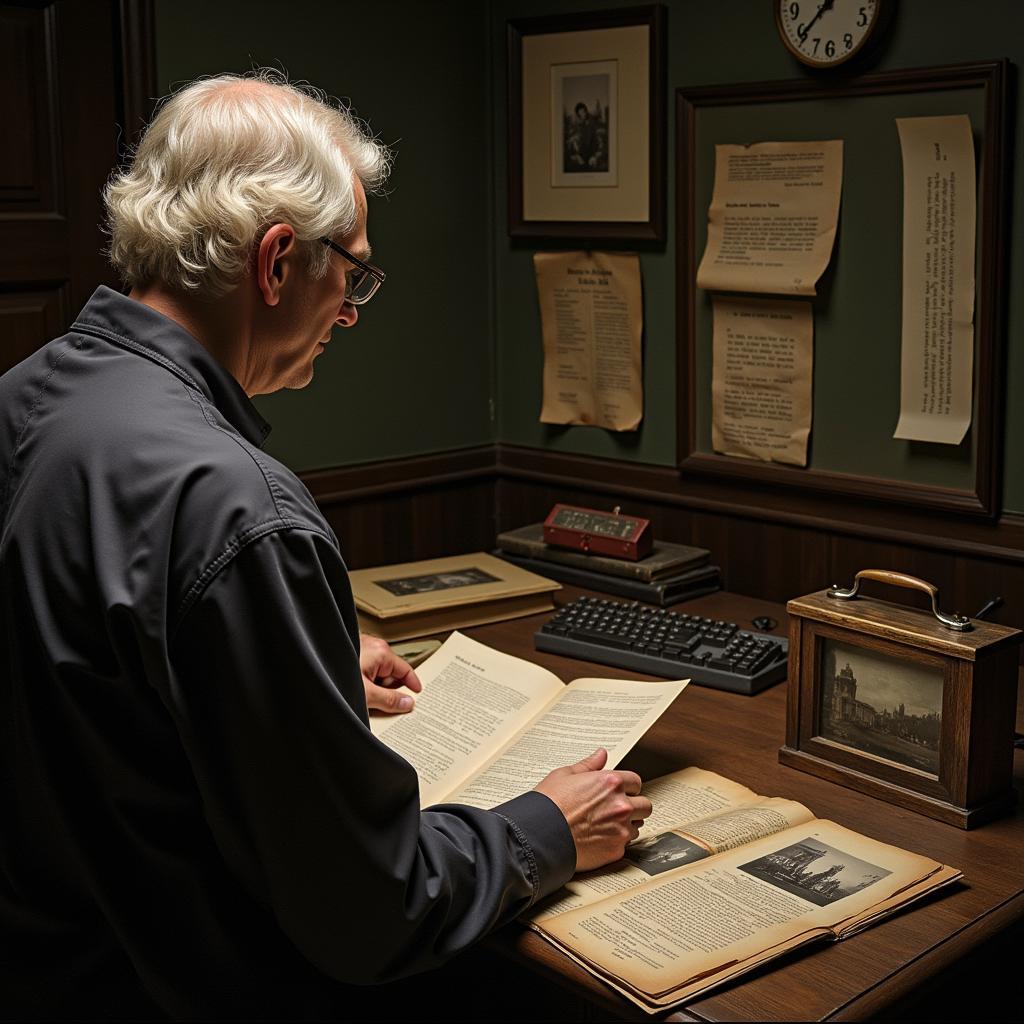Creswell Qualitative Research offers a powerful framework for exploring the unexplained phenomena that captivate our imaginations. From ghostly apparitions to strange occurrences, the world of the paranormal often defies traditional scientific methods. By embracing a qualitative approach, researchers can delve into the subjective experiences, narratives, and interpretations that shape our understanding of these enigmatic events. This article will explore how Creswell’s methodologies can be applied to paranormal research, providing valuable insights into this fascinating field.
As paranormal investigators, we often encounter situations that defy easy explanation. A chilling whisper in an empty room, an object moving seemingly on its own, or a vivid dream that feels undeniably real. These experiences, often dismissed as mere coincidence or imagination, can be profoundly impactful for those who witness them. Creswell’s qualitative research framework offers a path to understanding these experiences, not by seeking definitive proof, but by exploring the meaning and significance they hold for individuals and communities. It encourages researchers to embrace the complexities and ambiguities inherent in paranormal phenomena, acknowledging the subjective nature of these encounters. By doing so, we can move beyond simplistic explanations and gain a deeper appreciation for the human experience of the unexplained. More specifically, his work on qualitative inquiry and research design, as outlined in his book choosing among five approaches, helps us structure our investigations in a meaningful way.
Applying Creswell’s Five Approaches to Paranormal Research
Creswell outlines five major approaches to qualitative research: narrative, phenomenology, grounded theory, ethnography, and case study. Each offers a unique lens through which to examine paranormal phenomena. For instance, narrative inquiry could be used to explore individual accounts of ghostly encounters, while phenomenology could focus on the shared experiences of a group who witnessed a UFO. Grounded theory could help develop new theories about the nature of psychic abilities, ethnography could examine the beliefs and practices of a community that believes in witchcraft, and case study research could provide an in-depth analysis of a particular haunted location.
Narrative Inquiry: Exploring Personal Ghost Stories
Narrative inquiry allows researchers to delve into the personal stories of individuals who have experienced paranormal events. By carefully listening to and analyzing these narratives, we can gain valuable insights into the psychological, emotional, and spiritual impact of these experiences. For example, collecting narratives from individuals who claim to have seen apparitions could reveal common themes and patterns in their experiences.
Phenomenology: Uncovering the Essence of Paranormal Experiences
Phenomenology aims to understand the essence of a shared experience. In paranormal research, this could involve interviewing multiple witnesses of a strange event, like a UFO sighting, and identifying the common threads that run through their accounts. This approach can help us understand how these experiences are perceived and interpreted by those who witness them.
creswell qualitative inquiry and research design choosing among five approaches
Grounded Theory: Developing Theories of the Unexplained
Grounded theory allows researchers to develop theories based on the data they collect. In the context of paranormal research, this might involve analyzing a large number of reported experiences to identify patterns and relationships that could suggest new explanations for these phenomena. This iterative process can lead to the development of novel theoretical frameworks for understanding the paranormal.
Creswell’s Influence on Paranormal Investigation Methods
Creswell’s emphasis on rigorous data collection and analysis has significantly influenced paranormal investigation methodologies. His work encourages researchers to move beyond anecdotal evidence and embrace more systematic approaches to data gathering, analysis, and interpretation. This emphasis on rigor helps elevate paranormal research from mere speculation to a more credible field of inquiry.
 Influence of Creswell on Paranormal Investigation
Influence of Creswell on Paranormal Investigation
creswell and qualitative research
Ethnography and Case Study Research
Ethnography involves immersing oneself in a particular culture or community to understand their beliefs and practices. This could be applied to paranormal research by studying groups that believe in and practice rituals related to the supernatural. Case study research, on the other hand, involves in-depth analysis of a single case, such as a specific haunted location, to gain a comprehensive understanding of its unique characteristics and history.
 Case Study of a Haunted Location using Creswell's Methods
Case Study of a Haunted Location using Creswell's Methods
Conclusion: Embracing Creswell for a Deeper Understanding of the Paranormal
Creswell qualitative research provides a robust framework for exploring the often-misunderstood realm of paranormal phenomena. By embracing his methodologies, researchers can gain deeper insights into the experiences, beliefs, and narratives that shape our understanding of the unexplained. As we continue to explore the mysteries of the paranormal, Creswell’s work offers valuable tools for conducting rigorous and meaningful research.
FAQ
- What are the five approaches to qualitative research outlined by Creswell?
- How can narrative inquiry be applied to paranormal research?
- What is the role of phenomenology in understanding paranormal experiences?
- How can grounded theory contribute to developing new theories about the paranormal?
- How has Creswell’s work influenced paranormal investigation methods?
- How can ethnography and case study research be applied to the study of the paranormal?
- What are some of the limitations of applying qualitative research to the paranormal?
Further Questions to Explore
- How can Creswell’s framework be adapted to address the unique challenges of Paranormal Research?
- What ethical considerations should be taken into account when conducting qualitative research in the paranormal field?
- What are the future directions of qualitative research in paranormal studies?
See also: research concept map
Contact Us
For further assistance, please contact us:
Phone: 0904826292
Email: [email protected]
Address: No. 31, Alley 142/7, P. Phú Viên, Bồ Đề, Long Biên, Hà Nội, Việt Nam
Our customer service team is available 24/7.